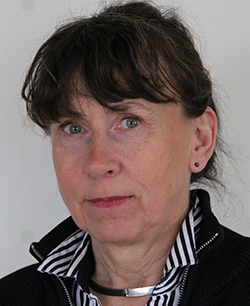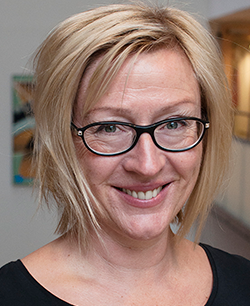Referens: Forskning om undervisning och lärande, vol 9, nr 3, s. 89-113
Författare:
Katharina Dahlbäck,
Catarina Schmidt,
Publiceringsdatum: 2021-12-16
Att utforska olika problemställningar genom konst kan vara ett sätt att ge nya perspektiv på komplexa frågor i arbetet med att uppfylla målen i Agenda 2030. När samhället ska anpassas till ekologiska, ekonomiska och sociala förändringar kan estetiska uttryck spela en viktig roll för att hitta nya vägar till lösningar och visa olika möjligheter för hur vi kan leva våra liv. Denna artikel utgår från ett musik- och poesiprojekt som pågick under ett år. Syftet är att undersöka möjligheter och hinder för konstnärliga samverkansprojekt i skolan samt relationen mellan rumslig, social och didaktisk inkludering och betydelsen av dessa ur ett hållbarhetsperspektiv. Intervjuer har valts som metod, och Illeris teori, Art Education for Sustainable Development, används som teoretisk utgångspunkt. I resultatet synliggörs hur elever inkluderades såväl rumsligt och socialt som didaktiskt i en konstnärlig process. Projektet var en deltagarorienterad intervention och kan ses som ett exempel på hur olika former av inkludering är en förutsättning för ett socialt hållbart samhälle.
av
Katharina Dahlbäck & Catarina Schmidt
Nyckelord: inkludering, musik, poesi, social hållbarhet
"I know that you can´t change the world, but you can have ambitions" - social sustainability perspectives on a music and poetry project
Abstract
Exploring different issues through art can be a way to provide new perspectives on complex issues in the work of meeting the goals of Agenda 2030.When society has to adapt to ecological, economic and social changes, aesthetic expressions can play an important role in exploring new ways to find solutions and show different possibilities for how to live our lives. The article is based on a music and poetry project that lasted for one year. The aim is to investigate opportunities and obstacles for artistic collaboration projects in schools, as well as the relationship between spatial, social and didactic inclusion, and the significance of these from a sustainability perspective. Interviews have been chosen as a method, and Illeris’ art theory, Art Education for Sustainable Development, is used as a theoretical starting point for analysing the material. The results highlight how students were included spatially, socially and didactically in an artistic process. The project was a participant-oriented intervention and can be seen as an example of how different forms of inclusion are a prerequisite for a socially sustainable society.
Keywords: Social sustainability, Music, Poetry, Inclusion
Corresponding author: Katharina Dahlbäck / katharina.dahlback@gu.se

